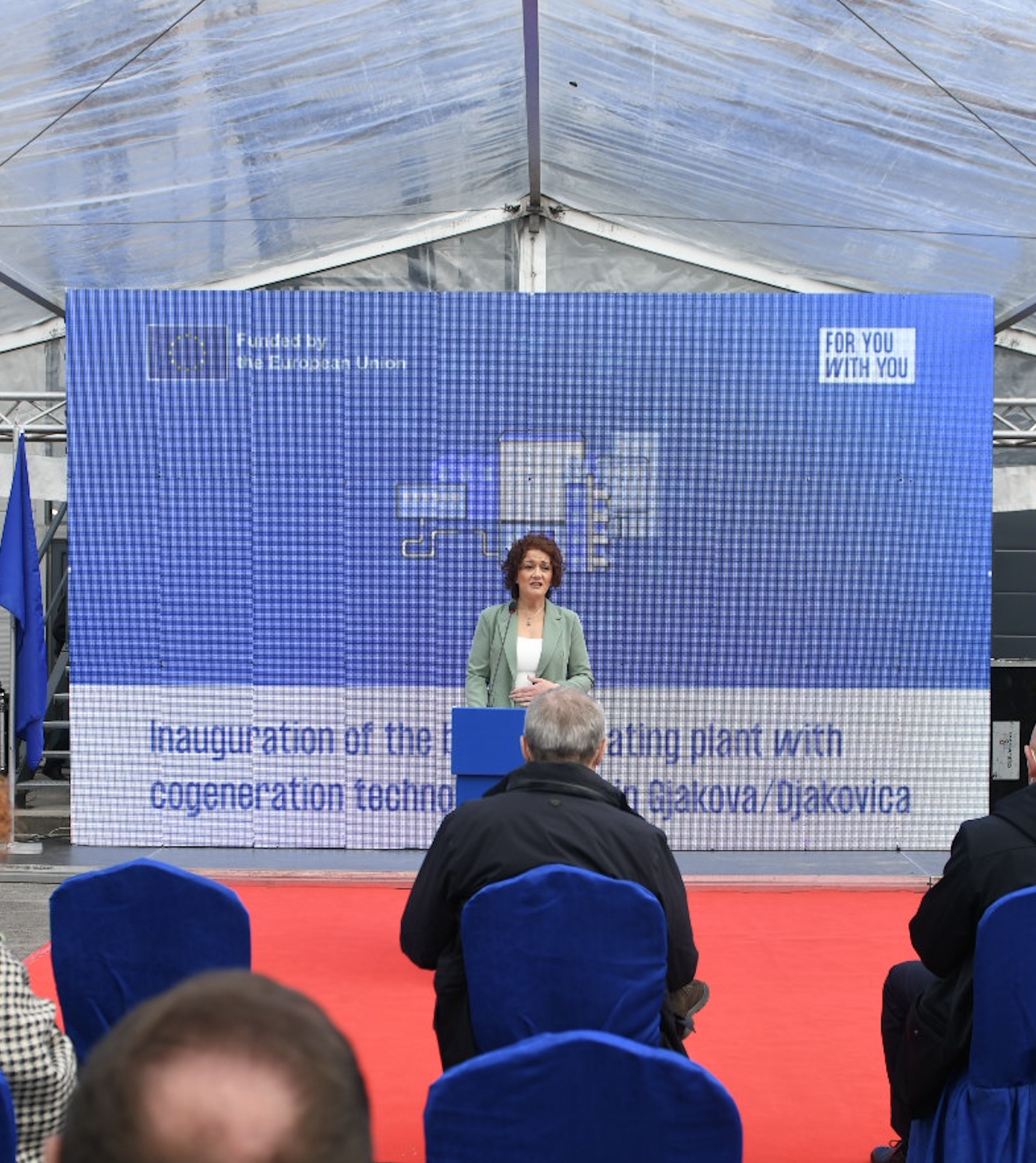Renewable energy for Kosovo
EU supports construction of a district heating plant based on renewable energy in Gjakova/Đakovica.
25/03/2022
When it was built in the early 1980s, the Ngrohtorja JSC district heating plant was the pride of the city of Gjakova/Đakovica. This was the only city in Kosovo apart from the capital to have a modern district heating system which was reliant on heavy fuel oil. However, heating with oil became less financially efficient, and awareness grew about the pollution it caused. As a result, in the years immediately following the 1999 war in Kosovo, Ngrohtorja almost completely stopped offering heating to the citizens of Gjakova/Đakovica and later provided it only for some hours during the day.
A glimmer of hope that the company might once again offer sustainable heating appeared at the beginning of the past decade, when, with the support of the EU, the Ngrohtorja district heating company initiated a feasibility study on providing quality and environmentally friendly heating energy to local residents.
“When the idea first became public, we were thrilled, but at the same time there was a certain degree of scepticism, as for many years now the company had not provided quality heating.”
Albana Skivjani, General Manager, Ngrohtorja JSCAlbana Skivjani is the general manager of the company. When the feasibility study was initiated, she was not a manager, but as a citizen of Gjakova/Đakovica and a client of the district heating company she remembers the enthusiasm among the population well. “When the idea first became public, we were thrilled, but at the same time there was a certain degree of scepticism, as for many years now the company had not provided quality heating,” says Albana.
The feasibility study proved that there was a realistic opportunity to bring back a central district heating system to Gjakova/ Đakovica and at the same time use an environmentally friendly energy source.
The magic word was biomass!
Heating with biomass uses organic matter as the fuel for a power station for heating or for generation of electricity. In the case of Gjakova/Đakovica, the plan was to use wood waste (woodchips) and waste generated from vine pruning which is plentiful in the area. However, despite the availability of biomass in the area that could be used as fuel, the project was not an easy one to bring to life, as the cost of the technology was very high and also needed a high level of expertise to make it function. The European Union stepped in and supported the project with around €15 million.
The new plant which produces both heat and electric energy was inaugurated in the autumn of 2021, becoming one of the very few state-of-the-art systems working on biomass in the Western Balkans and a pioneer for the future of energy. This winter, the energy produced by the plant has provided 24-hour heating to the majority of Ngrohtorja JSC district heating company’s customers.

“Personally, and on behalf of the residents of our city, I express my deep gratitude to the EU for this huge project that will provide heating for decades to come, and serve as a good example for other cities.”
Albana Skivjani, General Manager, Ngrohtorja JSCAccording to Albana, one of the main challenges was to learn to operate the new technology, as most employees had no experience of it. However, this obstacle was overcome with the support of the EU-funded project that provided specialised training for the staff on using the new technology. Albana explains that this winter they were able to provide 24-hour regular energy to their clients for the first time in many years. “Our clients are thrilled, along with everyone in the city, because apart from having heating, the city is also not polluted by us like it was before,” Albana says. The steady heating coming for the plant was particularly important this year, because of the global energy crisis when energy prices increased and when there were also energy shortages at some points.
“Personally, and on behalf of the residents of our city, I express my deep gratitude to the EU for this huge project that will provide heating for decades to come and serve as a good example for other cities,” Albana says.
About the project
Through the Instrument for Pre-Accession assistance (IPA) 2015 programme, the European Union invested over €15 million in preparatory activities and in the construction of the biomass heating plant in the city of Gjakova/Đakovica. The project was also supported through WBIF with over €600,000 for a study which assessed the technology, financial and economic feasibility, biomass supply chain and the environmental impact assessment. The project will have a significant economic and environmental impact on the city: the annual operational costs for Ngrohtorja JSC are expected to decrease by 35 to 50%, while the overall pollution level in the area will decrease by over 90%.
Photo credits: EU office in Kosovo